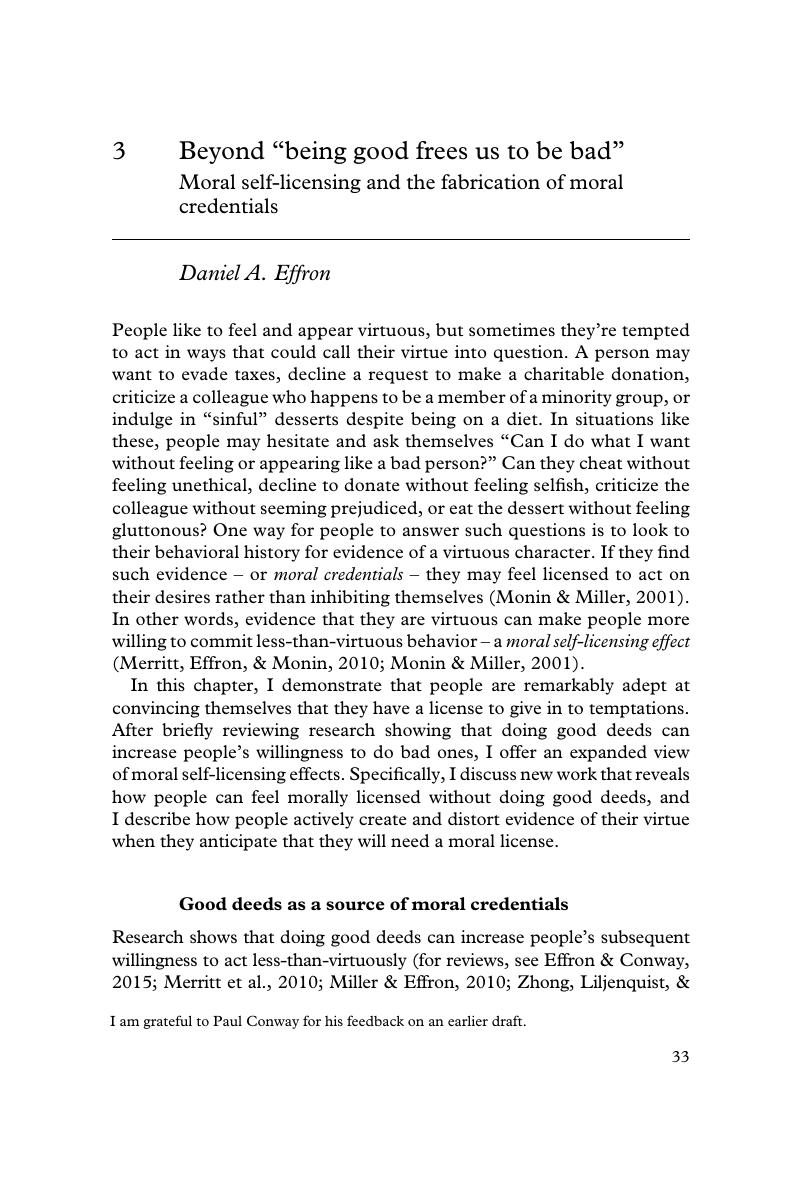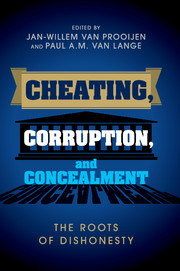Book contents
- Cheating, Corruption, and Concealment
- Cheating, Corruption, and Concealment
- Copyright page
- Contents
- Figures
- Tables
- Contributors
- Preface
- 1 Cheating, corruption, and concealment
- Part I Motivations for dishonesty
- 2 Moral motivation
- 3 Beyond “being good frees us to be bad”
- 4 Deception as a means to an end
- Part II Justifying dishonesty
- Part III Influences on dishonesty
- Part IV Reducing dishonesty
- Book part
- Index
- References
3 - Beyond “being good frees us to be bad”
Moral self-licensing and the fabrication of moral credentials
from Part I - Motivations for dishonesty
Published online by Cambridge University Press: 05 June 2016
- Cheating, Corruption, and Concealment
- Cheating, Corruption, and Concealment
- Copyright page
- Contents
- Figures
- Tables
- Contributors
- Preface
- 1 Cheating, corruption, and concealment
- Part I Motivations for dishonesty
- 2 Moral motivation
- 3 Beyond “being good frees us to be bad”
- 4 Deception as a means to an end
- Part II Justifying dishonesty
- Part III Influences on dishonesty
- Part IV Reducing dishonesty
- Book part
- Index
- References
Summary

- Type
- Chapter
- Information
- Cheating, Corruption, and ConcealmentThe Roots of Dishonesty, pp. 33 - 54Publisher: Cambridge University PressPrint publication year: 2016
References
- 3
- Cited by



